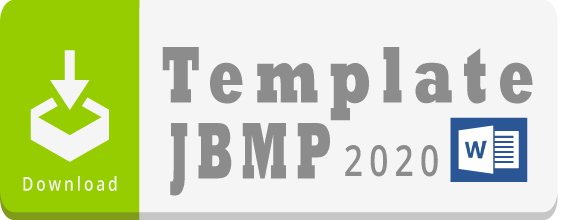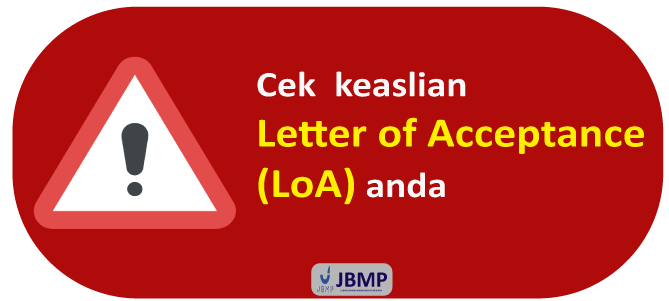Keterampilan Kepemimpinan Perguruan Tinggi pada Abad 21
 ), Deitje A. Katuuk(2), Viktory N.J. Rotty(3), Jeffry S.J. Lengkong(4),
), Deitje A. Katuuk(2), Viktory N.J. Rotty(3), Jeffry S.J. Lengkong(4), (1) Manajemen Pendidikan, Universitas Negeri Manado
(2) Manajemen Pendidikan, Universitas Negeri Manado
(3) Manajemen Pendidikan, Universitas Negeri Manado
(4) Manajemen Pendidikan, Universitas Negeri Manado
 Corresponding Author
Corresponding Author
DOI : https://doi.org/10.24036/jbmp.v10i1.112139
Full Text:
 Language : id
Language : id
Abstract
Perkembangan zaman membawa perubahan dalam kehidupan manusia. Perkembangan zaman yang terjadi pada abad 21 seperti yang sedang kita lewati ini ditandai dengan berbagaimacam tuntutan dan tantangan khususnya terkait dengan keterampilan yang dibutuhkan oleh sumber daya manusia untuk mampu bersaing dengan lainnya. Dalam hal ini, pendidikan merupakan salah satu cara memberikan bekal kepada setiap manusia untuk kesejahteraan hidup dimasa depan. Perguruan tinggi diyakini sebagai salah satu lembaga pendidikan tinggi yang mempersiapkan anak didiknya untuk terjun langsung dalam kehidupan dengan memberikan pengetahuan. Pendidikan tinggi merupakan salah satu agent of change untuk membekali anak didik dengan kebutuhan dan keterampilan yang dibutuhkannya dalam kehidupan nyatanya sehari-hari. Maka dari itu, mutu pendidikan tinggi harus ditingkatkan sesuai dengan tantangan dan kebutuhan zaman. Untuk hal itu, kepemimpinan perguruan tinggi yang memliki keterampilan abad 21 diyakini sebagai salah satu kunci untuk menentukan bermutu atau tidaknya suatu lembaga pendidikan tinggi. Keterampilan yang harus dimiliki oleh seorang pemimpin perguruan tinggi untuk menghadapi abad 21 adalah keterampilan dalam berkomunikasi, berkolaborasi, kreatif dan inovatif, mampu mengambil keputusan, mampu menyelesaikan masalah, mampu mengelola perubahan dan memiliki jiwa kewirasusahan
Keywords
References
Amghar, A. (2019). School-based leadership in the education reform agenda in Morocco: an analysis of policy and context. International Journal of Leadership in Education, 22(1), 102–115.
Angeli, C., & Valanides, N. (2012). Epistemological beliefs and ill-structured problem-solving in solo and paired contexts. Journal of Educational Technology & Society, 15(1), 2–14.
Fadaee, A., & Abd Alzahrh, H. O. (2014). Explaining the relationship between creativity, innovation and entrepreneurship. International Journal of Economy, Management and Social Sciences, 3(1), 1–4.
Francis C. & Baldesari. (2006). Systematic Reviews of Qualitative Literature. UK Cochrane Centre.
Garira, E., Howie, S., & Plomp, T. (2019). An analysis of quality of education and its evaluation: A case of Zimbabwean primary schools. South African Journal of Education, 39(2).
Gehrke, L., Kühn, A. T., Rule, D., Moore, P., Bellmann, C., Siemes, S., Dawood, D., Singh, L., Kulik, J., & Standley, M. (2015). Industry 4.0: A discussion of qualifications and skills in the factory of the future: A German and American perspective. VDI The Association of German Engineers, Düsseldorf.
Hargreaves, A., Halász, G., & Pont, B. (2008). The Finnish approach to system leadership.
Holmes, K., Clement, J., & Albright, J. (2013). The complex task of leading educational change in schools. School Leadership & Management, 33(3), 270–283.
Kalargyrou, V., Pescosolido, A. T., & Kalargiros, E. A. (2012). Leadership skills in management education. Academy of Educational Leadership Journal, 16(4), 39.
Kin, T. M., & Abdull Kareem, O. (2018). A comparative analysis on principal change leadership competencies in Malaysian high-and mediocre-performing secondary schools. Asia Pacific Journal of Education, 38(3), 394–413.
Kin, T. M., & Kareem, O. A. (2019). School leaders’ Competencies that make a difference in the Era of Education 4.0: A Conceptual Framework. International Journal of Academic Research in Business and Social Sciences, 9(5), 214–225.
Lau, J. Y. F. (2011). An introduction to critical thinking and creativity: Think more, think better. John Wiley & Sons.
Lee, W. O. (2012). Moral leadership: Where the East meets the West. Multicultural Education Review, 4(1), 29–50.
Maguad, B. A., & Krone, R. M. (2009). Ethics and moral leadership: Quality linkages. Total Quality Management, 20(2), 209–222.
Mainemelis, C., Kark, R., & Epitropaki, O. (2015). Creative leadership: A multi-context conceptualization. Academy of Management Annals, 9(1), 393–482.
Mason, M. (2007). Critical thinking and learning. Educational Philosophy and Theory, 39(4), 339–349.
Moos, L. (2015). Leadership for creativity. International Journal of Leadership in Education, 18(2), 178–196.
Mumford, M. D., Zaccaro, S. J., Connelly, M. S., & Marks, M. A. (2000). Leadership skills: Conclusions and future directions. The Leadership Quarterly, 11(1), 155–170.
Perry, A., & Hammond, N. (2002). Systematic reviews: The experiences of a PhD student. Psychology Learning & Teaching, 2(1), 32–35.
Phonsa, K., Sroinam, S., & Phongphinyo, P. (2019). Strategies for Developing the 21st Century Skills of School Principals under Loei Primary Educational Service Area Office. Asian Journal of Education and Training, 5(1), 198–206.
Puncreobutr, V. (2016). Education 4.0: New challenge of learning. St. Theresa Journal of Humanities and Social Sciences, 2(2).
Rosmaniar, W., & Marzuki, S. C. bin H. (2016). Headmaster Instructional Leadership and Organizational Learning on the Quality of Madrasah and the Quality of Graduates the State Madrasah Aliyah at Jakarta Capital Region. Higher Education Studies, 6(1), 159–168.
Slater, L. (2005). Leadership for collaboration: An affective process. International Journal of Leadership in Education, 8(4), 321–333.
Smith, L., & Riley, D. (2012). School leadership in times of crisis. School Leadership & Management, 32(1), 57–71.
Smoliar, S. W., & Sprague, R. (2003). Technology support for communication and understanding. Journal of Decision Systems, 12(2), 123–139.
Woods, P. A. (2013). Sense of Purpose: Reconfiguring entrepreneurialism in public education. In Understanding the principalship: An international guide to principal preparation. Emerald Group Publishing Limited.
 Article Metrics
Article Metrics
 Abstract Views : 18437 times
Abstract Views : 18437 times
 PDF Downloaded : 370 times
PDF Downloaded : 370 times
Refbacks
- There are currently no refbacks.




